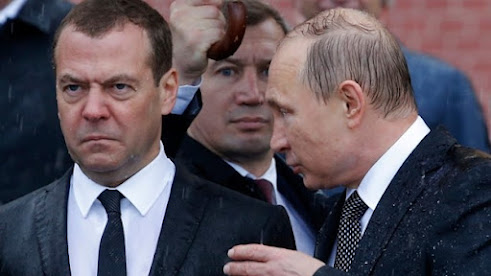Winston Churchill's naked diplomacy in the White House was not just bold but a masterclass in breaking down barriers and forging unshakable alliances. Simply put, Churchill’s unapologetic indulgence in cigars, scotch, and nudity at the White House was the secret weapon that secured Britain’s place in World War II.
When it comes to Winston Churchill, he certainly didn’t believe in beating around the bush—sometimes, he didn’t believe in covering it either. The British bulldog’s peculiar brand of diplomacy was a cocktail of cigars, scotch, and a little too much skin. Churchill’s approach to international relations was anything but conventional, and nowhere is this more evident than during his stays at the White House. His unique blend of bravado, charm, and unorthodox methods—occasionally involving nudity—proved highly effective in cementing the alliance between Britain and the United States during World War II.
Churchill’s
first visit to the White House in December 1941 came at a critical moment in
history. The attack on Pearl Harbor had just thrust the United States into
World War II, and Churchill knew that securing a strong partnership with
President Franklin D. Roosevelt was paramount. However, it wasn’t just military
strategy that Churchill brought to Washington—it was also a flair for the
dramatic. His boldest move? Meeting Roosevelt stark naked, with nothing but a
drink in one hand and a cigar in the other, declaring with a twinkle in his
eye, “You see, Mr. President, I have nothing to hide.” This cheeky display
wasn’t just an exercise in shock value; it was a calculated effort to establish
rapport and demonstrate his trustworthiness in the most literal sense.
Churchill’s
tactics went beyond just baring all; he knew how to work a room—especially if
that room was the White House. He was a frequent guest, making four lengthy
stays during Roosevelt’s presidency and one during Dwight Eisenhower’s.
Churchill’s ability to navigate the intricacies of diplomacy with a glass of
scotch in hand was legendary. He wasn’t merely a guest; he became a fixture, a
presence that the White House staff couldn’t help but admire, even if they were
left “open-mouthed in awe” at his prodigious consumption of alcohol. His
ability to mix pleasure with business wasn’t just a personal quirk—it was a
strategic tool.
Roosevelt
and Churchill were a study in contrasts: Roosevelt’s reserved, cautious
approach clashed with Churchill’s bombastic and effusive style. Yet, their
partnership was one of the most productive of the 20th century. The outcomes of
their meetings were monumental, laying the groundwork for a unified Allied
command and setting the stage for pivotal military operations like the Normandy
landings. Churchill’s ability to secure these outcomes was due in no small part
to his unorthodox methods. He knew how to blend the personal with the
political, using his charm to ensure that Roosevelt remained onside.
But
Churchill’s methods weren’t just about being likable—they were about being
unforgettable. His behavior at the White House, from padding around barefoot in
his “siren suit” to his late-night strategy sessions, wasn’t just eccentricity;
it was a deliberate effort to leave a lasting impression. Churchill understood
that in politics, perception is often as important as reality. By cultivating
an image of a fearless, larger-than-life leader who was utterly unembarrassed
by his humanity, Churchill ensured that he would not just be remembered, but
revered.
Churchill’s
diplomacy also extended beyond the personal rapport with Roosevelt. He had a
keen understanding of the importance of public perception. Even when relations
with Roosevelt became strained—such as during Churchill’s brief 32-hour visit
when Roosevelt was courting Josef Stalin—Churchill maintained the appearance of
a strong alliance. He knew that for the British public, and for the world, the
image of Churchill and Roosevelt as close friends was crucial. It wasn’t just
about the reality of their relationship; it was about the story Churchill
wanted the world to believe.
This
ability to control the narrative was another facet of Churchill’s unusual but
effective diplomacy. By maintaining the appearance of a solid partnership with
Roosevelt, Churchill kept Britain in the loop on crucial decisions and ensured
that he remained a key player on the world stage. This wasn’t just about ego;
it was about ensuring that Britain’s interests were safeguarded in the face of
a rapidly changing global landscape. Even as Churchill’s star began to wane in
the later years of the war, his mastery of “soft skills” kept him relevant and
influential.
Churchill’s
final visit to the White House, under Eisenhower, may have been tinged with the
sadness of a man aware that his time had passed, but it also demonstrated the
lasting impact of his diplomatic style. By then, the British Empire was in
decline, and Churchill’s efforts to arrange a summit with Stalin failed.
However, even in his twilight, Churchill’s personal magnetism was undeniable.
Eisenhower may have recognized that Churchill was “yesterday’s man,” but the
respect and admiration he commanded were a testament to his enduring legacy.
Churchill’s
time at the White House serves as a case study in how to get what you want in
the most unorthodox ways. His approach to diplomacy was a blend of audacity,
charm, and a keen understanding of human nature. Churchill knew that in the
high-stakes game of international relations, sometimes the best way to win was
to throw out the rulebook—or in his case, the robe.
And
perhaps that’s the ultimate lesson of Churchill’s unusual diplomacy: When it
comes to securing an alliance, it is not about what you wear, but what you
bare. Who knew that the key to a lasting partnership could be found in a
well-timed cigar, a glass of scotch, and a refusal to play by the rules? For
Churchill, diplomacy wasn’t just about negotiations and treaties—it was about
leaving an indelible mark on history, even if that mark came with a side of
nudity.















